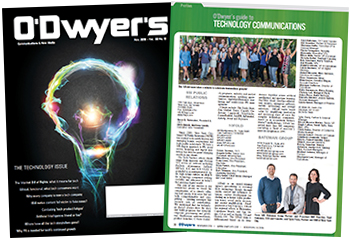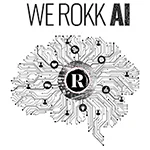 Sanjay Nair |
Technological innovations are fundamentally changing society as we know it, affecting both our work and personal lives.
In fact, artificial intelligence, long confined to advanced tech projects, is increasingly prevalent in objects as mundane as household appliances and as ubiquitous as smart phones. Google’s Pixel 3 phone, for example, has AI capabilities that auto-adjust the camera to capture the best picture, as well as predictive texting and machine-learning, enabled call screening, offering a preview into the coming Fourth Industrial Revolution.
That revolution is well underway and is seeing technological breakthroughs in a wide range of fields, including robotics, artificial intelligence, nanotechnology, the Internet of Things, fifth-generation wireless technologies and additive manufacturing/3D printing, among many others.
|
|
As the First Industrial Revolution used steam power to replace people in manufacturing, the Second replaced steam power with electric power, allowing for mass production. The Third utilized electronics and information technology to automate production. This so-called Fourth Industrial Revolution will combine aspects of each of these previous revolutions by blurring the lines between the physical, digital and biological spheres.
The result is a transformation of technological speed, impact, adoption and relevance that has no historical precedent.
The Fourth Industrial Revolution’s exponential pace is not only disrupting nearly every industry globally, but also fundamentally transforming entire systems of production, management and governance.
To put it bluntly, we’re living in a world where technology is evolving faster than we are, and we cannot predict the long-term societal impact these advancements will have.
As anxiety increases from the risks of AI, driverless cars and robotic automation, it’s our job as communications professionals to help people understand these emerging technologies and their impact — both good and bad — in a proactive way. In effect, we must help facilitate the long-term exponential thinking necessary to develop a system for technology to augment and complement humans.
A key component of this is ensuring that those responsible for the Fourth Industrial Revolution — technology companies — are taking the right actions to build and maintain society’s trust.
In the 2018 Edelman Trust in Technology supplement, we examined the societal and economic concerns in relation to technology of people around the globe. We found that even in this climate of distrust, technology is still the most trusted of all business sectors — meaning that technology companies have a license to lead.
The technology sector has evolved to a point where it isn’t about speeds-and-feeds; everything is now fast, and what’s important is how your tech can improve lives and provide positive change. Companies need the public to trust their technology if they want widespread adoption and those that haven’t built trust will pay a steep price in such an environment.
While tech is the most trusted business sector, troubling concerns around their societal value and impact are bubbling, and if disregarded could lead to further tech backlash. In our trust in technology supplement, three-quarters of respondents believe tech companies need to improve societal issues broadly, while 79 percent want tech companies to play a larger role in educating the future workforce to keep pace with emerging skills.
Organizations need to act with purpose and take a stand on issues that speak to their values. Leading with transparency and ethics both internally with employees and externally with stakeholders at large will have a positive impact on society and business, an impact that is welcomed by the general public.
This includes doing more to help regular people affected by emerging technologies, such as automation, in their day-to-day lives.
Our client, Infosys, partnered with the Rhode Island school of Design to train the future workforce with the necessary tech tools. Over the next two years, Infosys will train 1,000 designers across the globe, and has chosen to partner with RISD to contribute to this goal because of the institution’s ability to guide an immersive learning experience steeped in both studio practice and the liberal arts.
Beginning with an eight-week pilot this summer, Infosys will partner with RISD to develop a curriculum to build the skills of these designers, helping them acquire design- and human-centric skills in technologies used to address challenges facing Infosys’ global clients. Infosys will focus on hiring designers with these specialized design skills as part of its commitment to hire 500 American workers in Rhode Island over the next five years.
Companies must also set an example for inclusion and ethics. PayPal, for example, canceled plans to build a headquarters in North Carolina over equality concerns regarding the 2016 “Bathroom Bill.” The company chose to speak out against laws they saw as at odds with their company values. Both Adobe and HP have taken affirmative actions towards diversity and inclusion efforts. For example, HP has committed to diversity internally and externally with its suppliers and partners. Recently, Apple’s Tim Cook waded into the conversation around the separation of immigrant families and children.
Being open is crucial to building trust in tech. Only 53 percent of global respondents believe that tech companies are transparent and authentic in how they operate. For example, the recent backlash against social media tech giants related to privacy and transparency is making consumers increasingly wary of tech practices.
Technology companies must act to address data privacy concerns and join forces with regulators, platforms and consumers to restore and maintain trust. Silence is not an option.
The Fourth Industrial Revolution is being shaped on pillars of human curiosity as much as greed. We can’t afford to blindly pursue one, or be consumed by the other, without considering the eventual consequences. In short, how we act today as a global community will shape our collective future.
We are living in interesting times, with advances coming at a rapid-fire pace. AI and other emerging next-generation technologies are impacting how we work, live and play. Organizations today must take the human impact into consideration to be competitive in the business world of tomorrow.
***
Sanjay Nair is global chair of Edelman’s technology sector.



 Laura Anderson, who rose to VP/GM of global communications and events in a nearly 20 year stint at Intel, will take on the Americas technology chair at Burson following the completion of the BCW and H+K merger on July 1.
Laura Anderson, who rose to VP/GM of global communications and events in a nearly 20 year stint at Intel, will take on the Americas technology chair at Burson following the completion of the BCW and H+K merger on July 1. WE Communications has partnered with ROKK Solutions to form the WE ROKK AI service.
WE Communications has partnered with ROKK Solutions to form the WE ROKK AI service. In the dynamic world of modern business, effective communication is a pivotal tool for success across various industries. At Communications Strategy Group (CSG®), our expertise in embracing innovation in communication extends beyond traditional marketing strategies, paving the way for transformative industry-specific solutions.
In the dynamic world of modern business, effective communication is a pivotal tool for success across various industries. At Communications Strategy Group (CSG®), our expertise in embracing innovation in communication extends beyond traditional marketing strategies, paving the way for transformative industry-specific solutions. There are two types of tech PR professionals. Which one are you? And are C-suite executives making that decision for you?
There are two types of tech PR professionals. Which one are you? And are C-suite executives making that decision for you? While there’s an impulse to grab reporters’ attention with the newest industry-transforming tech product or service, a back-to-basics approach focused on telling the right stories to the right people is a far more successful way to ensure your technology campaign breaks through the clutter of today’s crowded tech landscape.
While there’s an impulse to grab reporters’ attention with the newest industry-transforming tech product or service, a back-to-basics approach focused on telling the right stories to the right people is a far more successful way to ensure your technology campaign breaks through the clutter of today’s crowded tech landscape.


 Have a comment? Send it to
Have a comment? Send it to 
No comments have been submitted for this story yet.